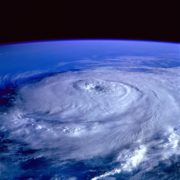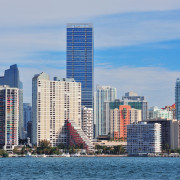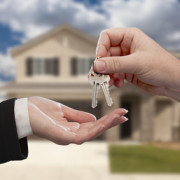Are you prepared for the 2019 hurricane season?
Hurricane season begins June 1st in Florida and early predictions are that this year will be as active as last. May is hurricane preparedness month and we have some tips to keep you and your home safe and secure.
Know Your Zone
Knowing whether your home is in a high-risk area for floods is crucial prior to the storm making landfall. Not only will knowing your zone affect your need for flood insurance, but evacuation orders are typically announced by zones. Check to see if your home is in a high-risk area here: https://msc.fema.gov/portal/search
Flood Insurance
When most people buy their home, they aren’t thinking of the potential for floods, unless they live directly on water like a lake, canal or the ocean. But floods can happen even outside of a floodplain, especially during a hurricane. Those in the way of Hurricane Katrina learned this the hard way as catastrophic flooding happened miles and miles inland after the levees gave way. We also saw unprecedented flooding during Hurricane Harvey last year in Houston. Damage from floods are not covered by most homeowner’s insurance policies, and a separate flood policy must be in place prior to any watches or warnings.
Be Prepared
If you are ordered to evacuate, have a plan in place where to go and when you will leave. In 2017 thousands of Florida residents tried to flee the state and spent hours, and in some cases, days stuck in traffic. When residents got to northern Florida, Georgia and Alabama many of the hotels were full. In most cases it isn’t necessary to leave the state during an evacuation, and officials recommend driving inland to ride out the storm.
Prepare Your Home
Prior to hurricane season, you should trim tree branches that might pose a hazard. If you don’t have protection on your windows, consider investing in hurricane impact windows or hurricane shutters. One budget-friendly option is to visit local Habitat For Humanity locations for shutters. Investing in a portable generator will help minimize inconveniences and discomfort after the storm should you lose power. You should also have a chainsaw ready in the event trees are down around your home.
Create a Survival Kit
Assembling necessary supplies prior to the hurricane will help avoid not being able to obtain items when store shelves are emptied panicked residents. Your hurricane kit should include:
- Flashlights and batteries
- First Aid Kit
- Backup batteries for cell phones and small electronic devices
- Water – at least one gallon per person for at least 3 days
- Medication
- Gasoline for generators and propane gas for grills
- Food –a 3 day supply of non-perishable food
- Baby wipes and hand sanitizer
- Fire extinguisher
Download a complete supply list from FEMA here: https://www.fema.gov/media-library/assets/documents/90354
Planning and preparation can make all the difference in surviving the storm before, during and after the next hurricane.











